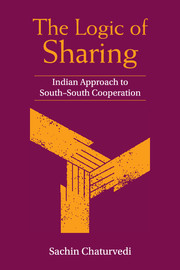Book contents
- Frontmatter
- Contents
- List of Tables and Figures
- Foreword
- Preface
- List of Abbreviations
- Section I Policy and Institutional Framework
- Section II Country and Regional Case Studies
- 4 Nepal: Evolving Framework and the Success of Communities
- 5 New Vigour in Africa: Ethiopia and Mozambique
- 6 Entrepreneurship Development in Laos and Cambodia
- 7 Exploring Niches in CIS: Experiences in Tajikistan and Kyrgyzstan
- Section III Summing Up
- Bibliography
- Index
4 - Nepal: Evolving Framework and the Success of Communities
from Section II - Country and Regional Case Studies
Published online by Cambridge University Press: 05 March 2016
- Frontmatter
- Contents
- List of Tables and Figures
- Foreword
- Preface
- List of Abbreviations
- Section I Policy and Institutional Framework
- Section II Country and Regional Case Studies
- 4 Nepal: Evolving Framework and the Success of Communities
- 5 New Vigour in Africa: Ethiopia and Mozambique
- 6 Entrepreneurship Development in Laos and Cambodia
- 7 Exploring Niches in CIS: Experiences in Tajikistan and Kyrgyzstan
- Section III Summing Up
- Bibliography
- Index
Summary
There can be no serious discussion of India's development cooperation programme without mention of Nepal. The commonalities emanating from the historical, geographical and cultural links between India and Nepal have been well reflected in various aspects of Indian development cooperation programmes. Grant-based support has been supplemented with development finance, concessional loans, access to technology and – most important – capacity building, different combinations of which have been leveraged in furtherance of this deep and multifaceted relationship. Soon after India's independence, Delhi came to an agreement with the Nepalese Government for the continued employment of Gorkha troops in the Indian Army, and a draft treaty of commerce and friendship between the two countries was formulated and concluded in 1950. India sent a scientific and cultural mission to Nepal in the summer of 1949, marking the beginning of India's contribution to building technical capabilities in its neighbouring country.
Despite India's generous contribution to Nepal's economic development, there have always been differing Nepalese perspectives on the nature and value of this assistance. While in the early years Nepalese assessments were generally positive, more critical voices began to emerge, especially after 1960 when the Nepalese monarch assumed political control and adopted a more nationalistic posture. In that climate of increasing assertion of national identity and political autonomy, Indian involvement in Nepal's development began to be seen by elements in Nepal as undermining the country's independence. While such political rhetoric was often negative, in practice Indian assistance continued to be sought and indeed increased steadily. Nepal's political transition to a democratic secular republic in 2008 did not bring any significant change as regards development cooperation. Jain (1959), Mansingh (1983) and Mihaly (2009) each captured some facets of the relationship. Not least, it is clear that in private conversations, the significant contribution made by India in Nepal's economic development is profusely applauded but in public pronouncements, entirely opposite views of the Indian role are projected. Nepalese leadership has not been able to get over this ambiguity.
During field work in Nepal, these two streams in perceptions were tangible and polarisation of perceptions was clearly evident when meeting people in different settings. We had gone there with details of the amount of money that the Indian Government has spent in creating infrastructure and encouraging skills and entrepreneurial capacity.
Information
- Type
- Chapter
- Information
- The Logic of SharingIndian Approach to South–South Cooperation, pp. 99 - 126Publisher: Cambridge University PressPrint publication year: 2015
